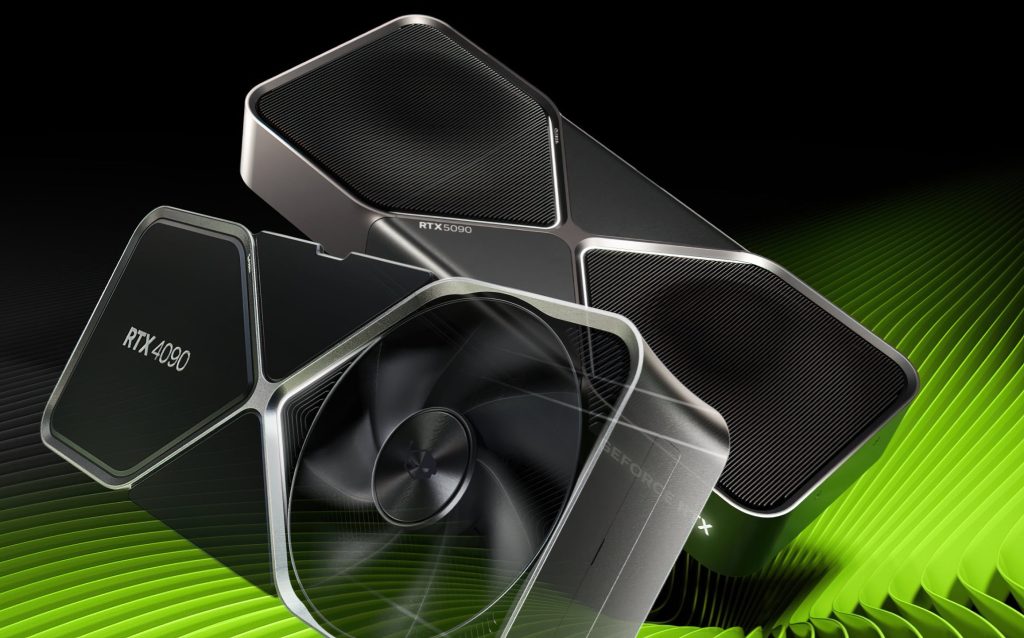The GPU market is currently facing a troubling wave of scams that prey on unsuspecting consumers. With the popularity of high-performance graphics cards surging, particularly in the context of gaming and AI computing, fraudsters are seizing opportunities to exploit buyers. One particularly deceitful method has emerged: selling empty GeForce RTX 5090 graphics cards.
Understanding the “Emptied-Out” GPU Scam
The demand for powerful graphics processing units (GPUs) has skyrocketed in recent months, driven by advancements in AI technology, gaming, and other intensive computational tasks. As such, the resale market has been rife with scams aimed at those seeking to purchase top-of-the-line hardware. A notable scam involves the sale of what appear to be legitimate RTX 5090 cards, but which have been gutted of essential components such as GDDR7 memory and the main GPU chip.
According to a report from NorthwestRepair, a well-known repair technician, one consumer fell victim to this scheme, purchasing an RTX 5090 for $2,000, believing they were receiving a genuine product. Upon opening the package, they discovered an empty printed circuit board (PCB) devoid of vital components. This situation has left many consumers confused, as they often send the cards back to repair shops, unaware that they have been scammed.
In addition to the empty cards, many of these units feature backplate screws that are physically damaged, complicating any attempts at inspection. NorthwestRepair advises against trying to open these GPUs, as doing so could lead to further damage to the already compromised PCB.
Recognizing and Avoiding GPU Scams
With the prevalence of these scams, it’s crucial to take proactive steps to protect oneself when shopping for high-end GPUs. Here are some essential tips to keep in mind:
- Verify Prices: Familiarize yourself with the manufacturer’s suggested retail price (MSRP) for GPUs. If you see listings for the RTX 5090 around $1,999, be skeptical, as legitimate sales at that price are virtually impossible unless they come from authorized vendors.
- Shop from Reputable Sources: Always opt for authorized retailers or physical stores when purchasing computer hardware. Avoid platforms like eBay, Craigslist, or any other marketplace where the seller’s credibility is questionable.
- Inspect Before You Buy: If possible, inspect the product in person to ensure it matches the specifications and condition described in the listing. If the item is shipped, demand detailed photos of the product from multiple angles.
- Beware of High Demand: Understand the heightening demand for GPUs due to their use in AI and gaming. This environment can lead to inflated prices and increased potential for scams.
- Research Customer Reviews: Before making a purchase from a less familiar retailer, look for reviews or feedback from previous customers to gauge the legitimacy of the seller.
Consumers should be vigilant and discerning to avoid falling victim to these fraudulent schemes. As GPU prices continue to fluctuate and demand remains high, the risk of such scams will likely persist.
Market Reaction and Regulatory Response
The emergence of these scams has triggered reactions not only from consumers but also from the broader market and regulatory bodies. Consumer protection agencies have begun to issue alerts concerning GPU scams, advising buyers to be cautious when making online purchases. Additionally, discussions within online forums and communities have heightened awareness of these scams, leading to a more informed consumer base.
According to a recent study by Statista, the demand for GPUs in the United States alone is projected to grow significantly through 2025, further emphasizing the need for both consumers and regulators to remain vigilant. For consumers, being part of gaming and tech communities can serve to share information and experiences that might prevent others from being scammed.
In summary, as the GPU market fluctuates and the demand for high-caliber technology soars, scams like the ’emptied-out’ GPU scheme will likely continue to evolve. By staying informed and exercising caution, consumers can better navigate the complexities of the current marketplace.
Quick Reference Table
| Aspect | Recommendation |
|---|---|
| Price Verification | Check MSRP, avoid deals that seem too good to be true |
| Seller Reputation | Purchase from authorized retailers |
| Product Inspection | Demand detailed photos, inspect if possible |
| Community Awareness | Engage in forums to learn from others’ experiences |
| Regulatory Alerts | Stay updated on consumer protection advisories |

